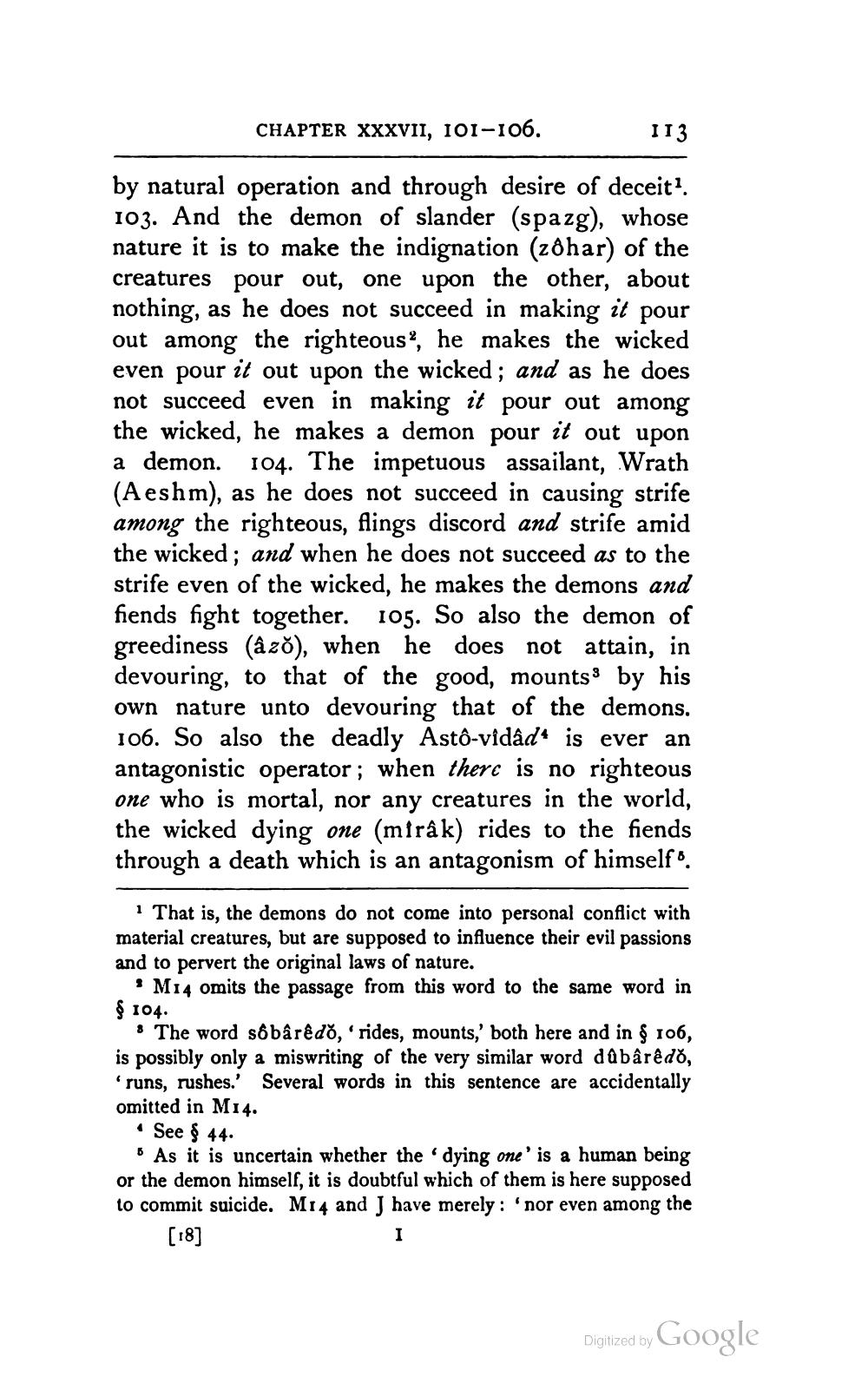________________
CHAPTER XXXVII, 101-106.
I13
by natural operation and through desire of deceit?. 103. And the demon of slander (spazg), whose nature it is to make the indignation (zôhar) of the creatures pour out, one upon the other, about nothing, as he does not succeed in making it pour out among the righteous, he makes the wicked even pour it out upon the wicked; and as he does not succeed even in making it pour out among the wicked, he makes a demon pour it out upon a demon. 104. The impetuous assailant, Wrath (Aeshm), as he does not succeed in causing strife among the righteous, fings discord and strife amid the wicked; and when he does not succeed as to the strife even of the wicked, he makes the demons and fiends fight together. 105. So also the demon of greediness (azo), when he does not attain, in devouring, to that of the good, mounts3 by his own nature unto devouring that of the demons. 106. So also the deadly Astô-vidad' is ever an antagonistic operator ; when there is no righteous one who is mortal, nor any creatures in the world, the wicked dying one (mirâk) rides to the fiends through a death which is an antagonism of himself.
1 That is, the demons do not come into personal conflict with material creatures, but are supposed to influence their evil passions and to pervert the original laws of nature.
* M14 omits the passage from this word to the same word in $ 104.
• The word sobâredo, rides, mounts,' both here and in $ 106, is possibly only a miswriting of the very similar word du bâredo,
runs, rushes.' Several words in this sentence are accidentally omitted in M14.
• See $ 44.
• As it is uncertain whether the 'dying one' is a human being or the demon himself, it is doubtful which of them is here supposed to commit suicide. M14 and J have merely : 'nor even among the
[18]
Digitized by Google




